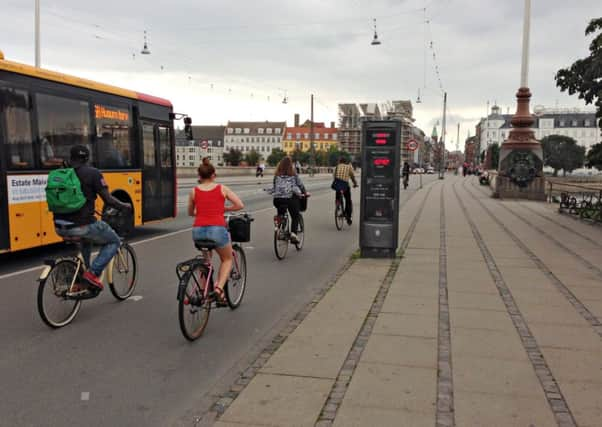Nigel Bagshaw: Capital gains from greener future


In my view there is something suspiciously flavour-of-the-month about the City Deal model – a reflection of the fact that city regions have too few powers to really drive what happens in their locality; and the failure of taxation policy to properly capture the windfall gains from public investment.
Nevertheless, if that’s what is on the table I’d rather Edinburgh was in than out.
Advertisement
Hide AdAdvertisement
Hide AdThe question is what kind of City Deal and what kind of city. Do we want to plod along the path of undifferentiated growth which sees cities compete for footloose investment which could be anywhere in the world? Or do we want something that is distinctively Edinburgh and builds on our current and future strengths?
At the moment Edinburgh is preparing a proposal, working with adjacent councils, on the Capital as a “knowledge city”. It recognises the strength of our four universities and Edinburgh College, as well as the commercial research and development that happens here. But I doubt that it’s unique to Edinburgh.
That is why, in my view, we need to strengthen that pitch and position Edinburgh as the leading UK city for the sustainable economy. That’s where the future jobs will come from; that’s where we will get the high quality life which will attract people who wish to live, learn and invest here.
So, if the City Deal was to herald Edinburgh as the UK’s leading sustainable city, what might that imply?
Firstly, it could take a leaf out of Copenhagen’s network of cycling super-highways which are now seen as a key part of economic infrastructure in the way which was traditionally reserved for motorways or public transport projects. Those strategic commuting routes are estimated to have saved one million sick days for the city region each year – a massive boost to wellbeing and the economy.
Secondly, it could start to forward-plan core site infrastructure like district heating networks, high-efficiency public lighting and modern waste systems in a much more co-ordinated way, into which developers pay as development is built out, without having to inch forward with incremental planning agreements.
Thirdly, it could help maintain and enhance the city’s green jewels – our trees and parks and open spaces – which make it such a special place to live and which give it crucial edge over greyer competitors.
Of course, a sustainable city needs to be a fairer city. To tread more lightly on the planet’s diminishing resources is to recognise that poverty cannot be tackled by scattering crumbs from ever-expanding commercial profit. There is a limit to resources, so they need to be shared more fairly.
Advertisement
Hide AdAdvertisement
Hide AdThis is why Edinburgh as a knowledge capital is so vital: to ensure that the jobs bonanza from the sustainable economy is directed at people who most need that benefit through skills and training.
So a City Deal for a greener and fairer Edinburgh. Where do we sign up?
Councillor Nigel Bagshaw is the Green spokesperson on transport and planning